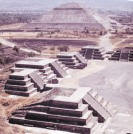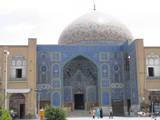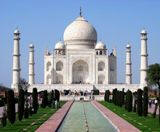Invitation to an International Conference
Philosophical Challenges and Opportunities of
Globalization
Boston, MA. U.S.A.
August 7-9, 1998
A
conference on the "Philosophical Challenges and
Opportunities of Globalization" will be held in Boston
during the three days immediately prior to the XXth World
Congress of Philosophy. The conference will be co-sponsored
by the ISM, WUCPS and the Department of Philosophy of Boston
College and will be coordinated by the RVP.
Theme
Globalization is a new phenomenon with economic, political
and cultural-philosophical dimensions.
- Economically, it is an interlocking supra-national system
with power to effect the development and underdevelopment of
the different parts of the world, rich as well as poor. As a
system, it has certain overbearing tendencies in relation to
such higher human interests and values as personal identity,
social justice, national sovereignty and the various
conceptions of cultural and religious life. It can
marginalize not only people in various parts of the world,
but also things, social as well as individual, which are
valued by people as human beings.
- Politically, it constitutes a global system of interchange
of power with which peoples in all parts of the world must
contend, each in their own ways, in order democratically to
maintain their human identities in cooperation with others.
- Culturally, it constitutes a new openness of the human
spirit which may present opportunity as well challenge. In
retrospect, the last millenium could be interpreted as a
great project of human reason, beginning from the high
middle ages with the reintroduction of the Aristotelian
corpus and the great Summas.
This focus upon reason was radicalized in the Enlightenment,
with many undoubted good effects enabling the world to
support a burgeoning population through inventions ranging
from nutrition, to communication, to law. But this
radicalization has remained largely Euro-centric in its
thinking, marginalizing other forms of thought and culture
and leaving them far from liberated.
Soon after Descartes, J.B. Vico noted that so radical and
exclusive a focus upon reason in the laboratory of clear and
distinct ideas would not allow for the development of other,
properly human dimensions of human awareness, but instead
would generate brutes--intellectual brutes, but brutes
nonetheless. Recently, especially with the collapse of the
cold war, we have become more sensitive to the limitations
of the abstractive power of this Euro-Centered technical
reason which channeled social understanding toward the
extremes of individualism and communism. Looking back, there
appears now to be a fairly universal consensus that we do
not want to repeat the last century with its world wars, hot
and cold; its pogroms, holocausts and mass--even
atomic--bombings; and its economic and cultural
exploitation.
This philosophical critique now extends across the entire
modern project from left to right so that it is common to
refer to present times as postmodern, if not postEuropean.
But as life cannot be built upon skepticism this opens a
radically new opportunity, namely to regain and reintegrate
other dimensions of reason, deeper reaches of the human
personality and a broader range of sensibilities to more
integrating senses of life, diverse cultures, minorities,
women and the environment. Whereas "postmodern" bespeaks
criticism of what preceded, "globalization" points forward
to a new philosophical agenda, namely, both horizontally to
broaden awareness to include all peoples and cultures, and
vertically to deepen to new metaphysical and religious
dimensions of meaning and values where we dwell in spirit.
At the turn of the millennia, therefore, this conference
will explore the expansion of this sphere in which we live
and move and have our being. To do so for philosophers is
but the exercise of their human responsibility for the
reflective dimension of civil society. The topics implied in
this theme include among others: a critical appreciation of
reason and of the new reaches of human awareness; the
implications of cultural awareness for the enrichment and
extension of philosophy; the responsibility of philosophy in
the evolution from conflictual to peaceful human
interchange--not only economic and political, but especially
social, cultural and religious.
The Conference: Structure, Program and Addresses
Rationalism has long considered philosophy to be an
individual endeavor conducted abstractly in the privacy of a
closed study or within the confines of a certain national
spirit; in certain respects it will retain something of
this. But, in the face of globalization understood
culturally as well as economically, philosophy must deepen
human self-understanding corporately through joint
phenomenological reflection and interchange upon the
conscious human experiences of all peoples. This conference
will bring together philosophers from all parts of the world
for such concentrated discussion and critical evaluation on
globalization itself.
The program will consist of a sequenced discussion of twelve
issues each led by a 25 minute summary of a substantive
predistributed study followed by an hour of broad critical
discussion in which new philosophical insight can emerge.
The major work of the conference will consist in this. You
are invited to make suggestions regarding the particular
subthemes which should be treated and the philosophers who
should be invited to make these major presentations. You are
invited also to submit by May 20th your own paper for
presentation and/or publication. This should be a
substantive study of, e.g., 20 or more printed pages to be
sent on diskette (preferably in Word Perfect or Word), with
printout attached. Related volumes developed by teams of
philosophers can be developed also for consideration for
eventual publication by the Council (see project on p. 12
below).
The meeting will be
coordinated by The Council for Research in Values and
Philosophy (RVP). All papers and program concerns should be
directed to:
Professor George F. McLean
The Council for Research
in Values and Philosophy (RVP),
Cardinal Station PO Box
261, Washington D.C., 20064, USA;
e-mail: mclean@cua.edu; tel/fax
202/319-6089
The conference will take place at Boston College in the
Heights Room of the New Dining Hall on Thomas More Road.
This is very close to the end of the "Boston College"
tramway line from the site of the World Congress at Boston
University. Local arrangements for the conference will be
coordinated by Prof. Oliva Blanchette, Department of
Philosophy, Boston College, Chestnut Hall, MA 02167; e-mail:
oliva.blanchette@bc.edu; tel: 617/552-3850; fax:
617-552-3874. Boston College will provide a continental
breakfast before the morning session and tea/coffee in mid
morning and mid afternoon. There is a cafeteria in the
building where one can purchase noon or evening meals.
Housing arrangements should be made with the XXth World
Congress organizing committee by advancing your date of
arrival there to Aug. 6 (see enclosed form). [The address of
the XXth World Congress of Philosophy Secretariat is:
American Organizing Committee, Inc., Boston University, 745
Commonwealth Avenue, Boston, Mass. 02215, USA; tel:
01-617-353-3904; fax: 01-617-353-5441; e-mail:
paideia@bu.edu; listserv: majordomo@bu.edu congress-list;
WWW: http://web.bu.edu/wcp.] A complete program and updated
information on the XXth World Congress is to be found on its
web site.





